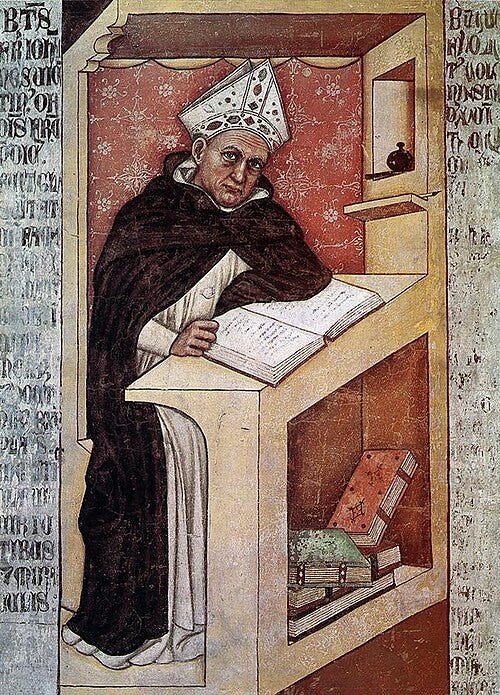"He Will Quickly Revenge Them"
Saturday, November 15th Readings Reflection: Saturday of the Thirty-second Week in Ordinary Time
In today’s Gospel, Our Lord gives a parable about a dishonest judge. A widow frequently besought the judge to render a just judgment for her against her adversary. The judge was unwilling to do so for a long time, but at the widow’s persistence, he finally agreed so that she would stop pestering him. Our Lord tells us, “[W]ill not God revenge [H]is elect who cry to [H]im day and night: and will [H]e have patience in their regard? I say to you, that [H]e will quickly revenge them” (18:7-8 DRB).
The word “revenge” in Our Lord’s words may seem to contradict Christ’s teaching of forgiveness in the Gospels. However, as St. Thomas Aquinas explains, revenge or righteous anger is not in and of itself evil in the proper circumstances. It can be an extension of justice, and like justice, its source is found in God. Aquinas defines this kind of revenge as resisting evil “either by self-defense or by avenging it” (Summa theologiae, II—II, q. 108, a. 2).
We must never desire revenge or vengeance that is directed to the person’s evil. To desire any sort of evil upon a person, especially his eternal damnation, is a grave sin against charity and contrary to Catholic teaching. “If, however,” St. Thomas Aquinas explains further, “the avenger’s intention be directed chiefly to some good,… (for instance that the sinner may amend…and God [be] honored), then vengeance may be lawful, provided other due circumstances be observed” (Summa theologiae, II-II, q. 108, a. 1).
In all things, we must seek the eternal salvation of those who have wronged us or others. The revenge of hate is gravely sinful, but the revenge about which Our Lord speaks in today’s Gospel seeks the conversion of the sinner in charity. St. Cyril of Alexandria provides further details into the difference between sinful revenge and righteous anger: “Whenever men inflict injury upon us, we must then think it a noble thing to be forgetful of the evil; but when they offend against the glory of God by taking up arms against the ministers of God’s ordinance, we then approach God imploring His help, and loudly rebuking them who impugn His glory” (Catena aurea).
Throughout history and even in our present day, priests and consecrated religious have suffered terribly as a result of hatred toward God, the Church, and their holy ministry. The Church teaches that sins against priests and religious are sins of sacrilege, which is the profanation or mistreatment of a person, place, or thing consecrated to God. Today, the Church celebrates the Feast of St. Albert the Great, who gives us an example of how we should defend the truth and the holy men and women of God.
St. Albert the Great is a Doctor of the Church and the patron saint of scientists. The first German Dominican to receive the prestigious title of Master of Theology, St. Albert was an admired teacher of theology. Along with his most famous pupil, St. Thomas Aquinas, St. Albert created a program of philosophical study that later became the foundation of the Pontifical University of St. Thomas Aquinas, which still exists today.
After Aquinas’s death, his writings faced much criticism from within the Church, as theologians were hesitant to accept his use of non-Christian philosophy in his treatises. St. Albert the Great, who outlived his pupil, spent the last six years of his life defending the works of Aquinas from this criticism, recognizing in his pupil a true gift to the Church. While it would be centuries before the writings of Aquinas were fully accepted in the Church, St. Albert’s defense nonetheless helped pave the way for his becoming an indispensable foundation of Catholic theology and philosophy. He defended his pupil through charity and wisdom, never resorting to hatred of his opponents but instead entrusting all to God, Who brought about Aquinas’s just recognition in His Providential timing.
May St. Albert the Great pray for all persecuted priests and religious, as well as for us the laity, that we may defend the Church and her holy servants with truth and charity, trusting that God’s justice shall always triumph.


